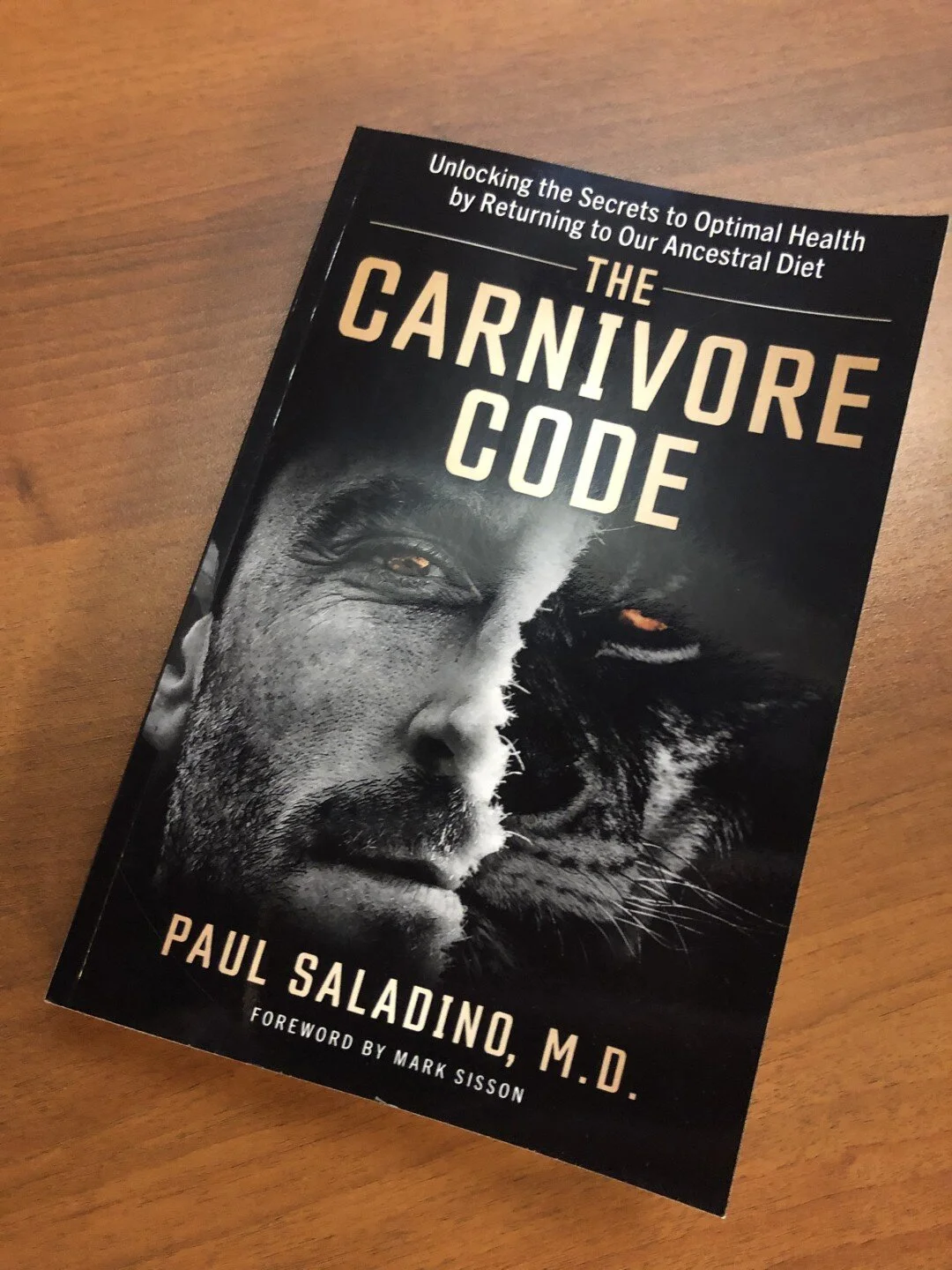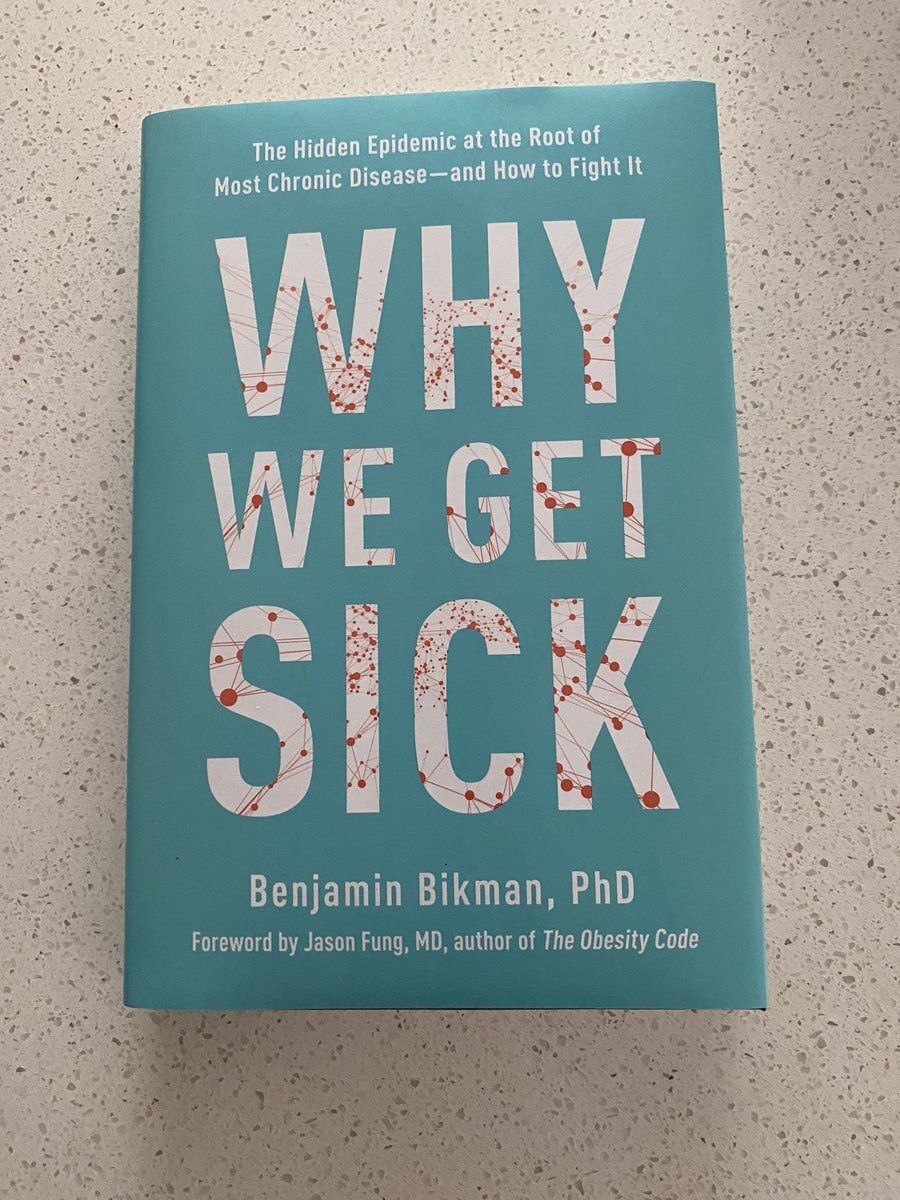book thoughts: Regenerate by Sayer Ji
TL:DR Challenging the standard of practice, pill-for-every-ill approach to healthcare, Sayer Ji dives into the history of how the modern medical establishment came to be, as well as explores the alternative to the “sickcare” system by looking into ways of optimizing health through holistic practices and functional medicine tactics, rather than managing illness.

book summary: The Carnivore Code
TL:DR — Meat isn’t bad for you and doesn’t have to be for the planet either. Veggies may be the underlying cause of your health or digestive issues.
What is the Carnivore diet?
The Carnivore diet is what “healthy woke” people think the #Paleo diet is. To clear up any confusion, Carnivore is a way of eating in which you only consume animals (steak, fish, bone broth, steak, organ meats, steak), NO PLANTS. You can stretch that into animal products (eggs, cheese, or honey) but you’d really be blurring the lines. Paleo consists of both meat and plants.
Why would anyone only eat animals?
Because steak is delicious?! Regardless of what the “game changers” told you, animals (and everything in them) are the best concentrated source of nutrients you can find (assuming they’re humanely raised, wild caught, grass fed, free range, etc). Animals are able to extract nutrients from the plant material they eat better than humans can because of the length and structure of their digestive system. In this case, size matters! Additionally, animals have an innate intelligence that allows them to know how much of any particular plant they can eat without it making them sick, as they navigate the landscape, selecting up to 170 different grasses and twigs for daily consumption. This becomes important because all plants contain toxins, and too much of one can cause problems.
Why are plants making toxins? Can they be harmful?
Plants make toxins as a defense mechanism against being eaten because they can’t run away. In small doses they’re probably fine. There is an argument that plants are only beneficial due to the hormetic response that comes from these toxins. The problem arrises when we eat too much and get overloaded, as in consuming that same fucking kale smoothie you’ve had for the last 6 years. It's possibly doing more harm than good. If you are suffering from inflammation, digestive issues, skin problems, or autoimmune conditions, using #Carnivore as a tool for an elimination diet to see if symptoms improve might be a good idea.

book summary: Why We Get Sick
TL:DR — We get sick because we are insulin resistant. (I saved you $25)
3 out of 5
What is Insulin Resistance and Why does it matter?
One of insulin’s main roles is the regulation of blood sugar, which rises and falls throughout the day in response to our choice of food and stress load. At its simplest, if you eat sugary foods or encounter stress your blood sugar rises, because high amounts of glucose circulating in the blood are dangerous, insulin is produced to drive it into the cell for energy, or store it in fat cells for later use. If this occurrence happens too frequently, there is a reduced response to the hormone insulin. It’s like listening to your friend bitch about the same thing day after day, eventually you get tired of hearing about it and stop listening. This is bad because it can lead to high blood glucose levels, or “hyperglycemia” — the universal sign of diabetes. Even worse, with higher levels of circulating glucose and insulin, come lower levels of brain and sexual function.
What makes us Insulin Resistant in the First Place?
Too much insulin causes insulin resistance — for every 1unit increase in fasting blood insulin, a person can experience a 20% increase in resistance. When a process excessively activated, the body will dampen its response to the excess stimulus in order to reduce the activation (think antibiotics and bacteria resistance). If a cell, whether liver or muscle, is inundated with insulin, it can do nothing to directly reduce the insulin the pancreas is producing, but it can alter itself to ensure that insulin has a smaller effect; becoming resistant. As this occurs in countless cells/tissues throughout the body the prevalence of insulin resistance rises.
How to Fight Insulin Resistance?
Stop eating processed carby foods and switch to whole foods. Additionally, move your body in a way that challenges it daily. As muscle contracts, it's able to take in glucose from the blood without using insulin, reducing the burden overall. Because movement enables this insulin-independent process, our blood insulin naturally lowers during and shortly after exercise.